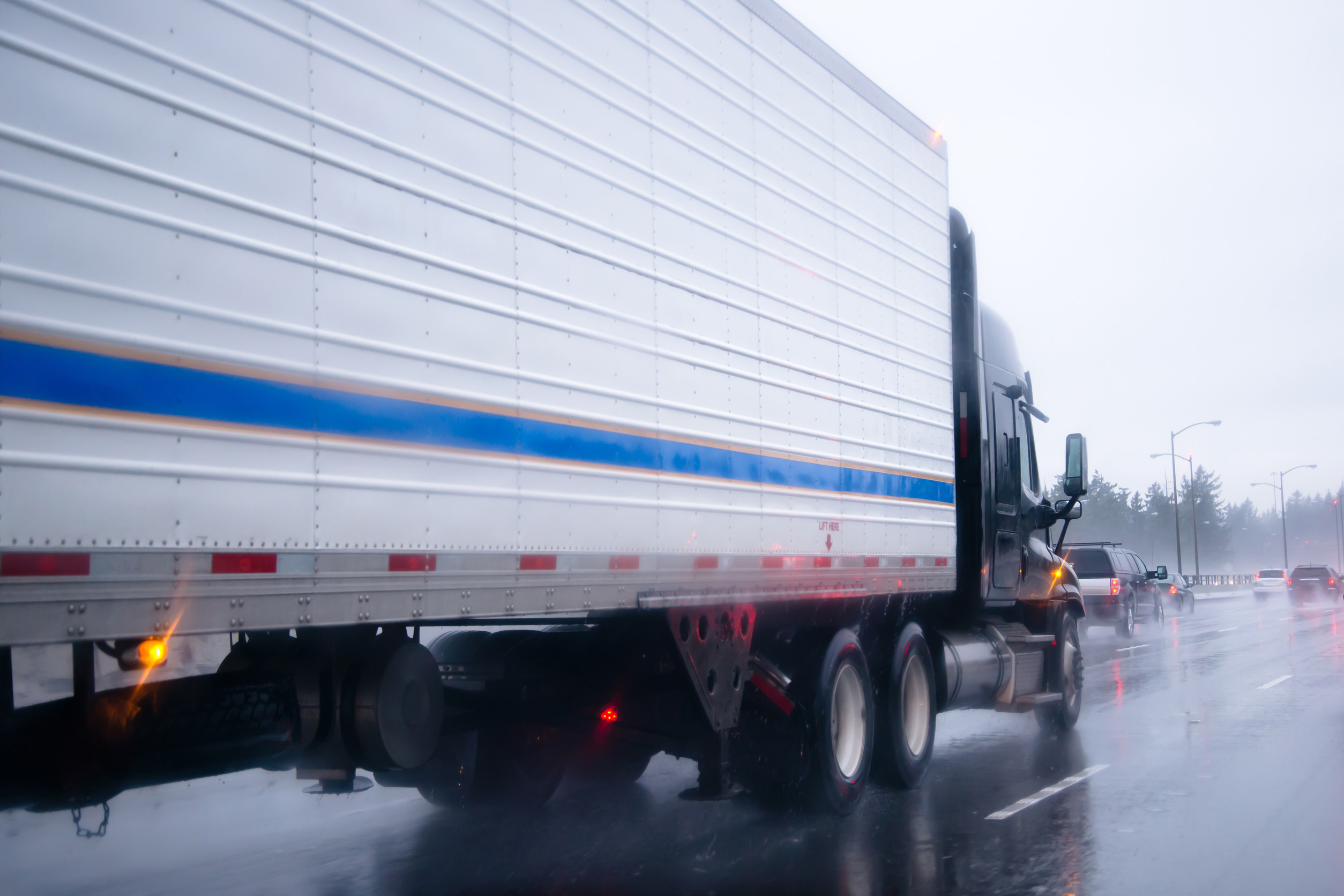3 min read
Ezoory v. Sanchez: Colorado Court Rules on Expert Testimony in Fatal Crash Case
Joe Whitcomb
:
October 11, 2025

On February 2, 2022, Joel Ezoory and his wife, Leora Ezoory, were traveling in Clear Creek County, Colorado, when their vehicle collided with the rear of a parked tractor-trailer. The tractor-trailer was driven by Jose Manuel Sanchez, an employee of Elite Trucking & Transportation, LLC, and had been relocated from the shoulder of Interstate 70 onto an exit ramp by Chris Lamb, an employee of Western Distributing Company, operating as Western Towing and Recovery. The impact killed Leora Ezoory and seriously injured Joel Ezoory. Following the accident, Joel Ezoory filed a lawsuit against Sanchez, Elite Trucking, Western Distributing, and Lamb.
Procedural History
Ezoory’s complaint alleged negligence, negligence per se, wrongful death, and negligent hiring, training, and supervision against the corporate defendants. He brought the case both individually and as the representative of his wife’s estate and their five children. Elite Trucking and Sanchez later settled and were dismissed from the case in October 2024. The remaining claims against Western Distributing and Lamb proceeded toward trial.
Ahead of trial, both parties filed several motions in limine concerning expert testimony. The court consolidated these motions, addressing them in an omnibus order. The motions covered expert witnesses on accident reconstruction, medical and psychological evaluation, trucking industry standards, and regulatory compliance.
Motions Concerning Expert Testimony
The defendants moved to exclude portions of testimony from plaintiffs’ expert witnesses, including psychologist Dr. Jonathan Greene, engineer Colin Wein, and commercial vehicle safety consultant Paul Herbert. They argued that some opinions exceeded the experts’ qualifications or lacked sufficient foundation. Plaintiffs, in turn, sought to exclude or limit the testimony of defense experts, including accident reconstructionist William Bortles, regulatory consultant Christopher Bonanti, and traffic safety expert Benjamin Royall.
The court evaluated the admissibility of each expert’s opinions under Colorado Rule of Evidence 702 and the standards established in People v. Shreck (2001), which requires expert testimony to be reliable, relevant, and helpful to the jury.
Key Findings on Expert Admissibility
The court denied the motion to strike Dr. Greene’s opinions. It found that he was qualified to testify regarding traumatic brain injury, post-traumatic stress disorder, anxiety, and depression, based on his extensive experience in cognitive rehabilitation and his professional background. Although his reports referred to “diagnostic impressions,” the court held that such terminology did not render the testimony unreliable.
For engineer Colin Wein, the court granted the defense motion in part. It ruled that he could testify regarding safer possible tow locations for the truck but could not offer opinions about who had the authority to decide the final tow site or whether the truck was physically capable of being towed elsewhere. These subjects were found to be beyond his expertise or not disclosed in his reports.
For safety consultant Paul Herbert, the court similarly granted and denied in part. Herbert was permitted to testify about industry safety standards and a truck driver’s duty to select safe drop locations. However, he was prohibited from referencing Section 8.5 of the subcontract between Western and the Colorado Department of Transportation (CDOT), as the court found it irrelevant. He was also restricted from offering opinions on the mechanical function of the truck’s air brake system, as he lacked the qualifications to testify on that subject.
Defense Experts
The court denied plaintiffs’ motion to exclude testimony from defense experts Benjamin Royall and Christopher Bonanti. It determined that both experts were qualified under CRE 702 and that their testimony on traffic safety and regulatory compliance was reliable and relevant. Royall’s analysis of the I-70 Traffic Incident Management Plan and Bonanti’s opinions on transportation safety standards were deemed helpful to the jury. The court emphasized that disagreements about the weight or credibility of their opinions were issues for cross-examination, not exclusion.
As for accident reconstructionist William Bortles, the court denied most of the plaintiffs’ objections. It found his opinions regarding driver perception, visibility, and accident avoidance to be within his expertise and supported by his investigation. However, he was limited to opinions disclosed in his written report unless plaintiffs “opened the door” to additional topics during trial.
Additional Motions
Plaintiffs also sought to exclude potential testimony from defense experts about vocational rehabilitation and job capacity. The court denied this motion, finding that none of the defense witnesses were presented as vocational rehabilitation experts. Instead, their opinions related to medical and economic evaluations concerning Ezoory’s ability to return to work. The court concluded these opinions were permissible under CRE 702.
Court’s Ruling
On March 10, 2025, the District Court of Clear Creek County issued its omnibus order resolving all motions in limine. The court allowed the majority of expert testimony from both sides, with limited restrictions to ensure relevance and proper qualification. Specifically, it denied the motion to strike Dr. Greene’s opinions, partially granted motions concerning Colin Wein and Paul Herbert, denied exclusion of Royall and Bonanti, and partially limited Bortles’ testimony. The motion regarding vocational rehabilitation opinions was denied.
The case proceeded toward trial on the remaining claims of negligence, negligence per se, and wrongful death against Western Distributing Company and Chris Lamb.
Assistance with Motor Vehicle Collision Cases
If you or a loved one have been injured in a vehicle collision, Whitcomb, Selinsky PC assists with motor vehicle collision cases. Contact our team to learn how we can help you pursue recovery for injuries and losses resulting from traffic accidents.


